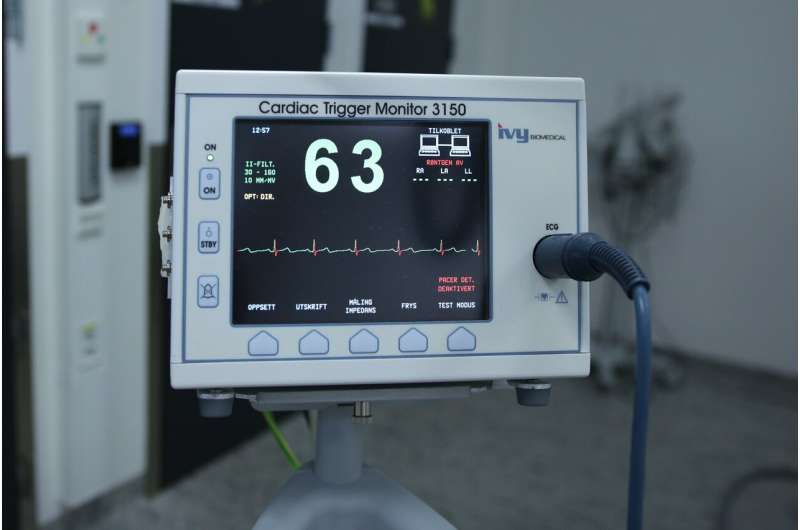This article has been reviewed according to Science X's editorial process and policies. Editors have highlighted the following attributes while ensuring the content's credibility:
fact-checked
peer-reviewed publication
trusted source
proofread
Post-stroke irregular heart rhythms don't predict another stroke, study finds

Worldwide, millions of stroke survivors undergo prolonged cardiac monitoring, leading to the discovery of atrial fibrillation, or irregular heartbeats, in up to 1.5 million of these patients each year.
A new study, published in The Lancet Neurology, describes the knowledge on atrial fibrillation detected in patients who had a recent stroke. The publication suggests that atrial fibrillation detected post-stroke is not quite the same as the irregular heartbeats already known before a stroke.
The study, led by Western professor Dr. Luciano Sposato, proposes that atrial fibrillation detected post-stroke exhibits distinct characteristics. It has a lower prevalence of risk factors, cardiovascular comorbidities, and changes associated with upper chambers of the heart than atrial fibrillation known prior to the stroke. This could potentially explain its association with a decreased risk of another ischemic stroke, which results from a blocked artery.
"The differences in the nature and effects of atrial fibrillation detected after a stroke compared to those known before are significant. The article proposes a new classification of heart rhythm and research standards to guide future research in the field, ensuring a more targeted and effective approach to secondary stroke prevention," said Sposato, who is Kathleen and Dr. Henry Barnett Chair in Stroke Research and head of the Stroke Program at London Health Sciences Center.
Better classification, more personalized treatment
Atrial fibrillation is usually asymptomatic in stroke patients and generally happens in short bursts which can only be detected by continuously monitoring the heart.
The balance between the total duration of each of those bursts of atrial fibrillation and other risk factors is pivotal in understanding patient risk levels and designing better treatment options.
In this article, the authors used information from their own studies, gathered over a decade of intense research in the field, and complemented it with updated data from other groups.
One of the main conclusions is that patients diagnosed with atrial fibrillation post-stroke generally have fewer associated health conditions and a 26% lower likelihood of experiencing another stroke than those with known atrial fibrillation.
This insight is crucial to design more personalized and effective treatment strategies for patients.
"To date, all patients diagnosed with atrial fibrillation after a stroke are treated with anticoagulants, except for when there is a clear contraindication. This is what current national and international guidelines recommend. In the future, we may be able to identify patients with relatively lower risk who may not need to be treated with anticoagulants immediately but would need to be constantly monitored to detect changes in their risk profile," said Sposato.
"However, further research is needed to prove this concept. AI-driven diagnostic tools are potential game-changers. Such tools may identify low-risk patients and may even flag moments in which their risk is transiently of permanently increased, requiring a change in their medications or prevention strategies."
Sposato and his colleagues are currently conducting a pilot clinical trial to gather more evidence on the optimal duration and type of prolonged cardiac monitoring in stroke patients. The pilot study is called STARGATE (Sweet spoT for cArdiac Rhythm monitorinG After sTrokE).
More information: Luciano A Sposato et al, Towards a new classification of atrial fibrillation detected after a stroke or a transient ischaemic attack, The Lancet Neurology (2023). DOI: 10.1016/S1474-4422(23)00326-5



















